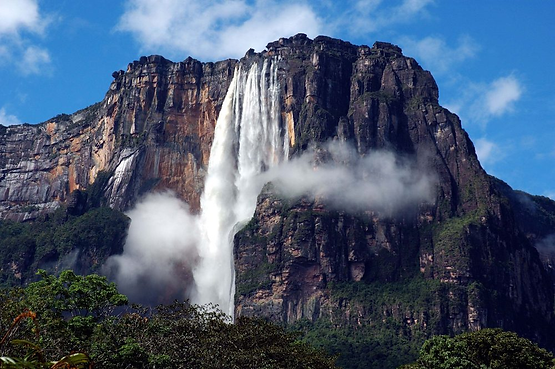
Parque Nacional Canauna

The Parque Nacional Canauna has an area of 11,600 square miles. It is also the second-biggest park in Venezuela and the 6th biggest national park in the world. It was established in 1692 in La Gran Sabana, part of the southeastern part of Venezuela. It was designated a UNESCO (United Nations Educational, Scientific and Cultural Organization) World Heritage site in 1994. The park has numerous rivers and supports a wide range of plant and animal life. Some animals that live in the park are mammals, birds, and amphibians. Some plants that grow there are orchids and bromeliads. About 65% of the park is occupied by plateaus of rock called tepuis. The most famous tepuis in the park is Mount Roraima. It's the tallest and the easiest to climb. The dominance of the Tepuis plateaus makes the Parque Nacional Canauna a huge draw for South Americans and people from all over the world.
Fun fact : 65% of the mountain is covered in a rock called tepuis
Animals that live in the Parque Nacional Canauna


Giant otters

hummingbird
Citations
backiee. “Parque Nacional Canaima Wallpapers - Backiee.” Backiee.com, 2025, backiee.com/search/parque+nacional+canaima. Accessed 11 Mar. 2025.
Citations Heckel, Heather D, and Jennifer L McCoy. “Venezuela | Economy, Map, Capital, Collapse, & Facts.” Encyclopedia Britannica, 26 July 1999, www.britannica.com/place/Venezuela. Accessed 8 Feb. 2025.World, UNESCO. “Canaima
National Park.” Unesco.org, 2018, whc.unesco.org/en/list/701/#:~:text=Canaima%20National%20Park%20is%20spread,are%20of%20great%20geological%20interest. Accessed 12 Feb. 2025.
Team, Ben. “The Wildlife of Canaima National Park - Animals Network.” Animals Network, 17 Mar. 2019, animals.net/canaima-national-park/#. Accessed 12 Mar. 2025.
“South America: Southern Venezuela, Northern Brazil, Western Guyana, and Eastern Colombia | Ecoregions | WWF.” World Wildlife Fund, 2025, www.worldwildlife.org/ecoregions/nt0124. Accessed 13 Feb. 2025.